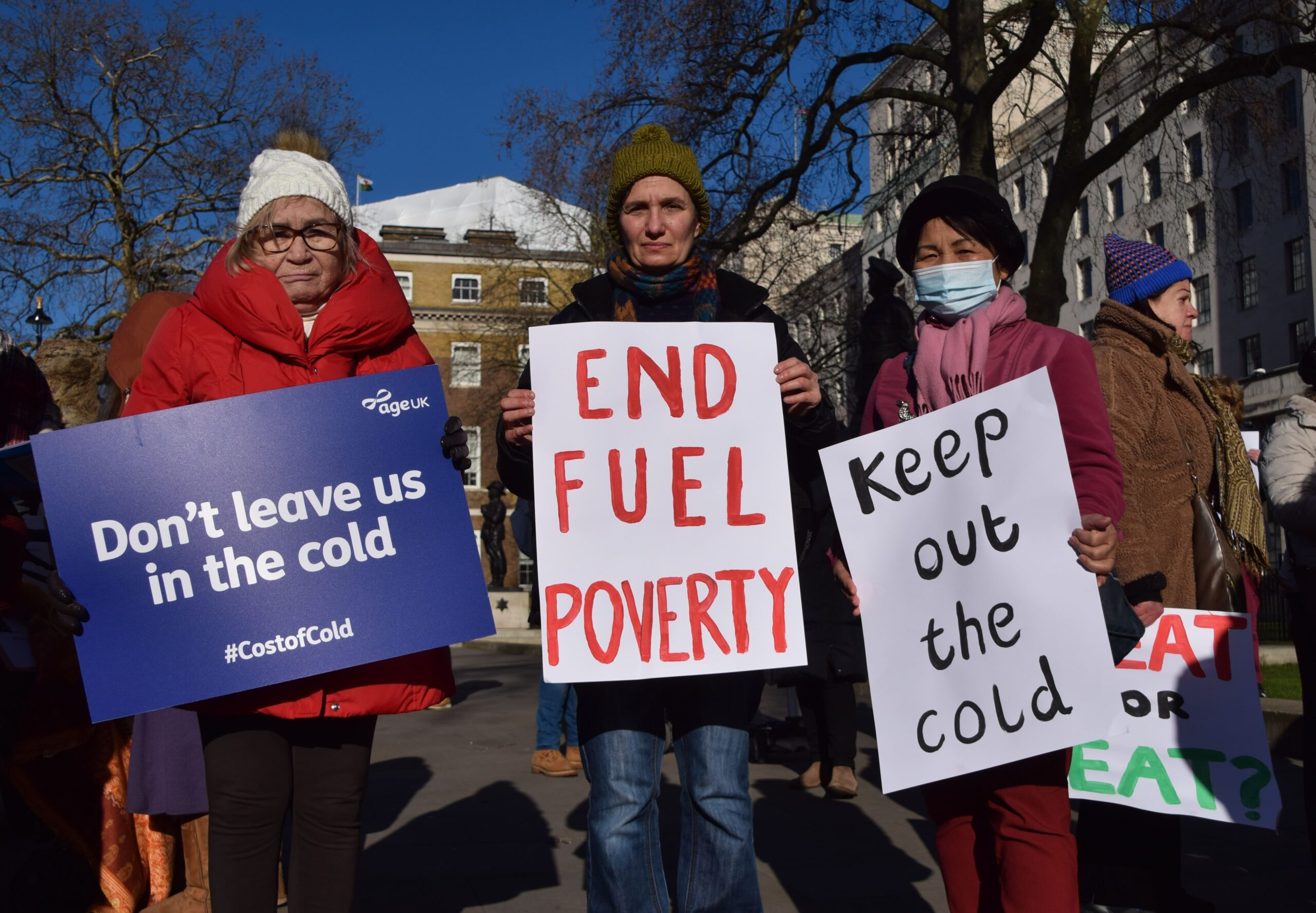Stop Calling It A Price Cap
It protects energy companies' profits, not consumers.
by Matteo Tiratelli
9 August 2022

For much of the 20th century, who controlled the supply of fossil fuels was a question of anti-colonial struggle and imperial ambition. Today, NATO-aligned states have made energy security a new priority in their perennial battle against Russia. And, as energy bills have gone through the roof, states across the EU have moved to nationalise a whole swathe of energy suppliers, from EDF in France to Uniper in Germany.
Britain hasn’t been immune to these recurring waves of nationalisation and privatisation. When Labour came to power in 1945, Clement Atlee appointed the combative Glaswegian trade unionist Manny Shinwell as his minister of fuel and power. This was a sop to the left of the party and, within two short years, Shinwell had nationalised the coal and electricity sectors.
Those nationalised industries lasted until the 1980s, when Margaret Thatcher began to sell off different parts of the energy sector. At first these private monopolies mirrored the public ones they had previously been: bills were set by regulators and competition was minimal. But under New Labour, price controls were finally dismantled and the “free market for energy consumers” fully emerged.
Although initially celebrated for bringing “substantial benefits for all consumers”, by 2008 it was clear that liberalisation was causing serious problems. A series of reports by Ofgem and the Competition and Market Authority found evidence of market abuses, unfair pricing and alleged that the ‘big six’ energy firms – British Gas, EDF Energy, E. ON, Npower, Scottish Power and SSE – had overcharged households by £1.7bn. By 2017, people with prepayment meters had a price cap and, in 2018, Theresa May extended that to all consumers.
The result of all this back and forth is that since 1948 there have only been 17 years where there wasn’t some form of control over British energy bills. But not all price controls are equal. And the price cap we have today is clearly not fit for purpose.
When the policy was introduced by May, it was planned as a temporary measure which would last for two years and be reviewed every six months. It covered the 11 million British households who were on ‘default tariffs’, excluding those on fixed-term energy deals and anyone who’d opted for ‘green’ energy supply. And it basically mirrored the existing rates offered by big six energy suppliers. Importantly, the cap also set the maximum price for each unit of energy, rather than your maximum total bill. Which means if you use more energy, you still end up paying more.
As energy prices have boomed over the last 12 months, Ofgem’s six-monthly price cap reviews have become a political flash point. In April, the price cap (which today covers 24 million households) went up by 54%. We’re due another announcement at the end of August, but the most recent estimates are for a further 70% increase, taking us to £3,359 a year, and potentially may top £4000 from January 2023. Now Ofgem has announced reviews will take place quarterly to “adjust much more quickly” to market volatility, i.e. “pass on rises in wholesale gas and electricity prices faster to consumers”, as the Financial Times assessed the change.
The price cap is clearly failing to protect consumers. So, what is it doing?
Ofgem’s price cap is designed to prevent “overcharging” – a subjective assessment of what responsible capitalist profits should look like rather than a reflection of a “fair price” for keeping your house warm. Therefore, about 55% of the cap reflects wholesale energy prices. (This is because the cap is a control on the prices paid by consumers to suppliers, not a control on the market price for energy that those suppliers pay to energy producers like BP and Shell who have announced record profits over the last year.) Another 30% reflects the costs of building and maintaining the energy network and the “operating costs” of the energy suppliers. 10% covers the government’s social and environmental policies, 5% goes to VAT, and 2% is the supplier’s guaranteed profit.
In setting these caps, Ofgem’s central concern has been to prevent energy suppliers from going out of business, even if that means pushing the rest of us to breaking point. But, in many ways, the failure of companies like Bulb is a direct result of Ofgem’s own actions. Energy prices were extremely low for most of the 2010s and, in a short-sighted bid to break the power of the established big six suppliers, Ofgem allowed lots of new companies into the marketplace without doing their due diligence. As energy prices have gone up over the last year, those companies quickly ran out of capital and have had to be bailed out, adding more costs to everyone’s bills and pushing up the price cap even further.
This points to a deep problem with the price cap. You can’t control the cost of energy bills without either also controlling wholesale prices or using tax revenue to pay the difference.
Both of those are possible. Across Europe, experiments in wholesale price controls are already underway. And, as more and more energy suppliers are nationalised, it will become easier for the state to subsidise our energy bills without simply lining the pockets of wealthy shareholders.
But it doesn’t look like the Tories or Labour have the political will to pursue this project. And, in the absence of credible reformist proposals, much more revolutionary energies are emerging. Whether that will break us out of the 20th century cycle of privatisation and nationalisation remains to be seen. But the combination of an unprecedented cost of living crisis and the unfolding catastrophe of climate breakdown makes radical change seem increasingly necessary.
Matteo Tiratelli teaches sociology at University College London.


